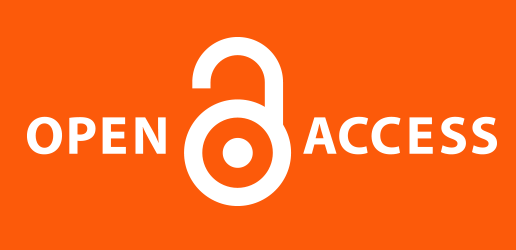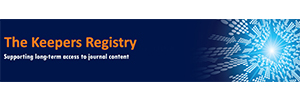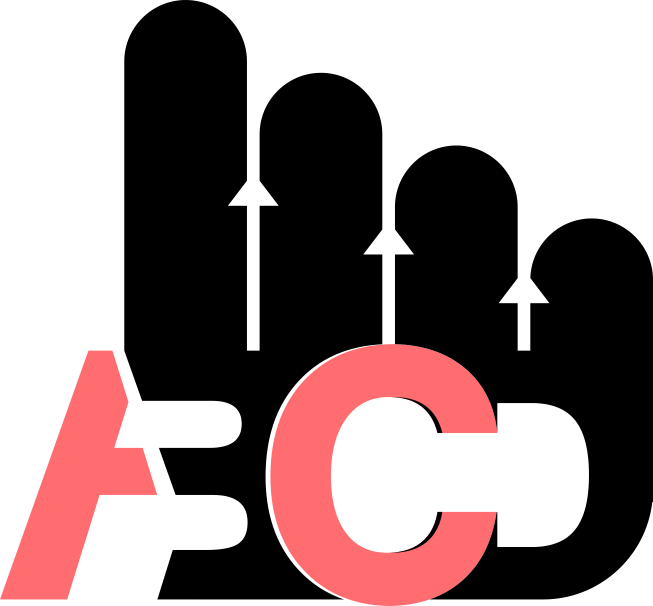Abstract
Background: This study explores the predictive role of cognitive flexibility on self-esteem among pre-service teachers in Punjab. Recognizing the importance of psychological attributes in teacher effectiveness, the research aims to understand how adaptability in thought processes relates to self-worth in future educators. Method: A descriptive research design was employed, with data collected from 250 pre-service teachers enrolled in Bachelor of Education programs across government and government-aided colleges in Punjab. Participants were selected through simple random sampling. The Cognitive Flexibility Inventory and the Rosenberg Self-Esteem Scale were used to assess cognitive flexibility and self-esteem, respectively. Results: Correlation analysis revealed a significant positive relationship between cognitive flexibility and self-esteem, indicating that higher adaptability is associated with greater self-regard. Both sub-dimensions of cognitive flexibility—alternatives and control—also showed positive correlations with self-esteem. Regression analysis demonstrated that cognitive flexibility accounted for 19% of the variance in self-esteem scores. Discussion: These findings suggest that cognitive flexibility plays a meaningful role in shaping the psychological well-being of pre-service teachers. Enhancing cognitive adaptability could lead to improved self-esteem, which is vital for personal and professional growth in the teaching profession. Conclusion: The study highlights the educational importance of cognitive flexibility in teacher preparation programs. Integrating strategies to foster adaptability may support the development of self-efficacious and resilient educators. Future research should investigate contextual and demographic moderators to better tailor interventions.
Introduction
In today’s fast paced technological paradigm, many countries across the world are progressively recognizing the significance of self-esteem-based teaching strategies into the education framework (Qianet al.,2023). These strategies are not just about teaching subjects. Instead, they focus on helping students believe in themselves and become stronger in facing challenges (Acosta-Gonzaga, 2023). Incorporating self-esteem-based strategies are crucial, as it has been shown to positively impact on cognitive performances (Lohbeck, 2020). This educational method motivates learners to discover pivotal information, incorporate different perspectives, and participate with compassion and cognition (Rochaet al.,2023). Cognitive flexibility, defined as the individual’s ability to shift from diverse approaches and perspectives in a specific circumstance, integrated with the readiness to adjust and react with certainty in displaying adaptability (Kazu & Pullu, 2023). It is the capability to shift cognitive functioning when encountered with unusual or new situations. Whereas some perceive it as a unique cognitive flexibility or competence, others regard it as a characteristic diverse cognitive processes or an intrinsic element of cognition (Öztürket al.,2022). Prior study by Kazu & Pullu, (2023) disclosed significant positive correlation cognitive flexibility and self-efficacy. Similarly, a study by Rademacheret al.,(2023) found cognitive flexibility as a significant predictor of resilience. Furthermore, Öztürk et al.,(2020) found positive relationship between cognitive flexibility and techno pedagogical competence among prospective teachers. On the other hand, self-esteem—which is characterized as a person’s opinion of their own value, whether good or negative—has a significant impact on their ability to finish schoolwork. This idea is crucial to a person’s existence since it has a big impact on their capacity to make decisions, maintain emotional stability, and generally be happy (Aggarwalet al.,2023). Self-esteem starts to develop early in childhood and is impacted by a number of things, such as peer connections, the school environment, and parental engagement (Harter, 2012). Additionally, self-esteem-boosting therapies have yielded encouraging outcomes (Onen & Ulusoy,2015). Self-esteem and associated results can be considerably enhanced by programs that emphasize social-emotional learning (SEL) and cognitive-behavioral techniques (Aggarwalet al.,2023). According to previous studies, pre-service teachers' interpersonal interactions and self-esteem are statistically significantly correlated (Kpodo, 2023; Kiruba & Venkataraman, 2017). Additionally, a study by Gavín-Chocanoet al.,(2023) found a strong link between self-esteem, pessimism, and optimism. Furthermore, Ümmet (2015) discovered that among college students, self-esteem is significantly predicted by the fulfillment of psychological demands and autonomy. Additionally, Sundaram & Patel (2021) found a strong correlation between college students' overall wellbeing and their sense of self-worth. Cognitively flexible pre-service teachers are better able to handle the complexity of the classroom, adjust to different teaching scenarios, and meet the varied demands of their pupils (Öztürket al.,2020). This flexibility not only increases their efficacy as teachers but also fosters a positive learning atmosphere where students are inspired and feel appreciated. Furthermore, a teacher's performance and professional growth are greatly influenced by their sense of self-worth. High self-esteem increases a teacher's likelihood of demonstrating self-assurance, implementing creative teaching strategies, and persevering through difficulties (Barniet al.,2019). Fostering both self-esteem and cognitive flexibility together has a synergistic effect that improves teachers' general wellbeing and effectiveness. To the best of our knowledge, there are limited number of studies examining the theoretically established relationship between cognitive flexibility and self-esteem (Malkoç & Mutlu, 2019). This gap in the research underscores the necessity of exploring the predictive role of cognitive flexibility in relation to self-esteem among pre-service teachers of Punjab. Addressing this gap will significantly contribute to the existing body of literature. This rationale strongly supports the focus on cognitive flexibility as a critical variable in understanding its relationship with self-esteem among pre-service teachers in Punjab.
Objectives Of The Study
1. To study the relationship between cognitive flexibility and its sub-dimensions (alternative & control dimension) with self-esteem among pre-service teachers.
2. To study cognitive flexibility as a significant predictor of self-esteem among pre-service teachers.
Hypothesis of the study
3. There is no significant relationship between cognitive flexibility and its sub-dimensions (alternative & control dimension) with self-esteem among pre-service teachers.
4. Cognitive flexibility is not a significant predictor of self-esteem among pre-service teachers.
Methodology
Research Methodology
This research employed a descriptive survey methodology to examine the predictive relationship between cognitive flexibility and self-esteem among pre-service teachers enrolled in Bachelor of Education programs at government and government-aided colleges in the Punjab region.
Sample of the Study
Simple random sampling was utilized to collect the data from 250 preservice teachers enrolled in two-year Bachelor of Education (B.Ed) programs across government and government-aided colleges of Punjab. Participants received comprehensive briefings on data confidentiality and the exclusive research use of their information, and informal consent was obtained earlier to their involvement in the study. Data collection occurred in June 2024, targeting individuals actively enrolled in teacher education programs at the time. Recruitment was conducted by directly reaching out to educational institutions and inviting participants based on their willingness and availability to engage in the study. The sample was designed to represent the demographic diversity and educational context of the region, thereby increasing the generalizability of the findings to comparable educational settings.
Research Instruments
To gather information from the sampled population, two main research instruments were used:
1. The 20-item Cognitive Flexibility Inventory (CFI), developed by Dennis and Vander Wal in 2010, measures a person's ability to adapt to difficult circumstances. A seven-point Likert scale, with 1 denoting "strongly disagree" and 7 denoting "strongly agree," was used by respondents to score each item. Alternative and Control are the two aspects of cognitive flexibility that are assessed by the CFI.
a. Alternative Dimension: Evaluates the capacity to identify several causes for occurrences and produce a range of solutions under trying conditions.
b. Control Dimension: Measures the tendency to perceive difficult situations as manageable or within one’s control.
2. The 10-item Rosenberg Self-Esteem Scale, which was created by Rosenberg in 1965, gauges one's total sense of value by assessing both positive and negative self-perceptions. A 4-point Likert scale, with 0 denoting "strongly disagree" and 3 denoting "strongly agree," was used to record the responses. Normal levels of self-esteem are indicated by scores between 15 and 25, whilst lower levels are suggested by scores below 15.
Justification for the Selection and Adaptation of Measurement Scales
The Rosenberg Self-Esteem Scale (RSES) by Rosenberg, (1965) and the Cognitive Flexibility Inventory (CFI) by Dennis and Vander Wal, (2010) were chosen due to their psychometric robustness, broad use, and well-established theoretical foundations. A commonly used instrument for evaluating cognitive flexibilitya concept essential to comprehending adaptation in decision-making and problem-solvingis the CFI. Likewise, the Rosenberg Self-Esteem Scale continues to be a foundational tool for assessing self-esteem and has been widely applied in a variety of cultural situations, including India. To guarantee their suitability and dependability for use with pre-service teachers in Punjab, the Cognitive Flexibility Inventory and the Rosenberg Self-Esteem Scale underwent extensive validation. These tests have been validated as accurate means of assessing components in educational environments across a range of demographic groupings (Dennis& Vander Wal, 2010; & Rosenberg, 1965).
Methodology for Gathering Data
After participants were fully informed about the goals, methods, and confidentiality of their answers, data collecting got underway. Participants gave their informed consent, guaranteeing that they understood the full scope of their voluntary involvement and that their information would only be utilized for research. Rosenberg’s (1965) self-esteem measure and Dennis & Vander Wal's, (2010) Cognitive Flexibility Inventory were among the research tools utilized; they were all distributed using Google Forms. Clear instructions were provided to standardize data collection procedures and minimize response variability. Ethical considerations were prioritized throughout the study. Participants were assured of the confidentiality and anonymity of their responses, with data securely stored and accessible only to the research team. The informed consent process emphasized participant’s rights to withdraw from the study at any time without repercussions.
Results
| Variables | Options | Number | Percentage |
| Gender | Male | 125 | 50% |
| Female | 125 | 50% | |
| Locale | Rural | 110 | 44% |
| Urban | 140 | 56% | |
| Family structure | Joint | 73 | 29% |
| Nuclear | 177 | 70% |
Table1 showing the demographic characteristics of the sample population. Regarding gender distribution, the sample is evenly split, with 50% male (n = 125) and 50% female (n = 125) participants. Moving to the variable “locale,” the majority of participants come from urban areas, constituting 56% (n = 140), while 44% (n = 110) come from rural areas. Lastly, in terms of family structure, a significant portion of the sample comes from nuclear families, comprising 70% (n = 177) of the participants, whereas 29% (n = 73) are from joint families.
Analysis of Data
Collected data underwent analysis using SPSS 22.0 version. The analysis of data is explained in different sections under (I) Descriptive analysis, (2) Correlation analysis and (3) Linear regression analysis.
Descriptive Analysis of the Data
Descriptive statistics of the data revealed the mean and standard deviation values for cognitive flexibility and self-esteem of pre-service teachers.
| Variables | Mean | SD |
| Cognitive flexibility | 99.18 | 19.35 |
| Alternative dimension | 59.10 | 10.21 |
| Control dimension | 29.51 | 9.47 |
| Self esteem | 16.63 | 1.98 |
| Cognitive flexibility | Minimum = 52 | Maximum = 140 |
| Self esteem | Minimum = 15 | Maximum= 29 |
Table 2 presents that cognitive flexibility scores range from 52 to 140, with a mean of 99.18 (SD = 19.358), indicating moderate variability and relatively high levels overall. The alternative dimension of cognitive flexibility ranges from 35 to 83, with a mean of 59.10 (SD = 10.210), reflecting moderate to high levels with lower variability. The control dimension scores range from 15 to 49, with a mean of 29.51 (SD = 9.477), indicating moderate levels with slightly higher variability. Self-esteem scores range from 15 to 29, with a mean of 16.63 (SD = 1.988).
Correlation Analysis of Data
| Variables | Cognitive flexibility | Alternative dimension | Control dimension |
|---|---|---|---|
| Self esteem | 0.151* | 0.176** | 0.167** |
| Note: *p < 0.05, **p < 0.01 |
Table 3 reveals a significant, though small, positive correlation between cognitive flexibility and self-esteem among pre-service teachers (r = 0.151, p = .017 level), indicating that individuals with greater cognitive flexibility tend to exhibit slightly higher levels of self-esteem. The alternative dimension of cognitive flexibility also shows a significant positive correlation with self-esteem (r = 0.176, p = .005 level), suggesting that a higher ability to generate alternative solutions is associated with increased self-esteem. Additionally, the control dimension of cognitive flexibility is significantly positively correlated with self-esteem (r = 0.167, p = .008), implying that better control over cognitive processes is linked to higher self-esteem.
Therefore, the first hypothesis “There is no significant relationship of cognitive flexibility and its sub-dimensions (alternative and control dimension) with self-esteem among pre-service teachers”, stands rejected.
Regression analysis of the Data
Prior to initiating the linear regression analysis, researchers conducted a thorough examination of the requisite assumptions. To evaluate homoscedasticity, scatter plots were inspected, which exhibited rectangular patterns (Bobbitt, 2022), confirming that this assumption was fulfilled. Furthermore, Durbin-Watson statistics ranged from 1.5 to 2.5, signifying the absence of serial correlation (Betancur, 2023), thus meeting another critical assumption of linear regression analysis (Ghosh, 2022).
| Variable | Non-standardized beta Coefficient | Standard. Error | standardized Coefficient beta | t | p |
|---|---|---|---|---|---|
| (Constant) | 15.09 | .651 | 23.17 | .000 | |
| Cognitive Flexibility | .015 | .006 | .151 | 2.40 | .017 |
R=.151 R2 = .023 Adjusted R2 = .019 F= (1,248) = (5.76) p = (.017)
Note: *p < 0.05.
Upon examination of Table 4, it was found that cognitive flexibility levels among pre-service teachers significantly predict self-esteem (p< 0.05). The regression coefficient for cognitive flexibility level was determined to be .015, indicating that for each one-unit increase in cognitive flexibility scores, self-esteem increases by .015 units. This suggests a positive association between cognitive flexibility level and self-esteem among pre-service teachers. Furthermore, the results indicated that cognitive flexibility explains approximately 19% of the variance in self-esteem scores among pre-service teachers, signifying a modest but statistically significant impact of cognitive flexibility on self-esteem among pre-service teachers. Therefore, the second hypothesis, “Cognitive flexibility is a significant predictor of self-esteem among preservice teachers”, also stands rejected.
Discussion
The analysis of the data revealed significant correlations between cognitive flexibility and self-esteem, with higher levels of cognitive flexibility associated with slightly elevated self-esteem among pre-service teachers. The finding corroborates with the study by Kashdan & Rottenberg, (2010) emphasized that cognitive flexibility enables individuals to reframe negative experiences positively, fostering resilience and enhancing self-esteem. Furthermore, the results indicated that both the alternative and control dimensions of cognitive flexibility are positively correlated with self-esteem among pre-service teachers. These findings are consistent with the studies conducted by (Kazu & Pullu, 2023; and Rademacheret al.,2023; Kaur, 2024), who documented strong correlations between cognitive flexibility, affective flexibility, resilience and self-esteem among adolescents. Regression analysis revealed that 19% of the variance in pre-service teachers' self-esteem was predicted by cognitive flexibility, indicating that cognitive flexibility is a major predictor of self-esteem among Punjabi pre-service teachers. This finding aligns with the research by (Demirtaş, 2020; & Ummet, 2015) who found that autonomy and psychological needs significantly predict self-esteem among college students and that improvements in cognitive flexibility over time are associated with increases in self-esteem among adolescents. These findings suggest that pre-service teachers can successfully negotiate the unavoidable changes and difficulties that occur during their teacher training time by exercising cognitive flexibility. People who are adaptable are more able to modify their tactics and actions in response to changing conditions than people who are inflexible and resistant to change. In the end, people can develop self-esteem and flourish in the face of uncertainty and change by embracing openness and flexibility. Educational implications The study offers important educational implications for teacher education programs and practices by highlighting the critical role that cognitive flexibility plays in raising pre-service teacher’s self-esteem. Integrating cognitive flexibility development into teacher education programs to enhance pre-service teachers’ adaptability and self-esteem. Curricula should incorporate experiential learning activities, such as scenario-based simulations and reflective journaling, to train educators in reframing challenges and exploring alternative solutions. Structured opportunities for collaborative problem-solving in peer groups can normalize adaptive thinking and reduce resistance to uncertainty. Mentorship initiatives pairing trainees with experienced teachers could model flexible decision-making in real-world classroom contexts. Institutions should prioritize fostering psychologically safe environments where experimentation and iterative learning are encouraged, allowing pre-service teachers to build confidence through trial and error rather than rigid adherence to perfection. Embedding mindfulness practices and stress-management techniques can further strengthen emotional regulation, enabling educators to navigate transitions during training with resilience. By centering flexibility as a core pedagogical competency, programs can empower future teachers to approach evolving educational demands with creativity, self-efficacy, and sustainable professional growth. Limitations and Future Scope Although this study offers insightful information about the connection between pre-service teacher’s self-esteem and cognitive flexibility, it must be noted that it has a number of drawbacks. First off, the findings may not be as applicable to other regions or educational settings due to the small sample size of 250 pre-service teachers from the Punjab region. Furthermore, this study's cross-sectional approach makes it impossible to demonstrate causal links between self-esteem and cognitive flexibility, highlighting the necessity of longitudinal research to track changes over time. The accuracy of the results may be impacted by social desirability and response biases, which are introduced by the use of self-report measures for data collection. Additionally, other confounding variables that could affect the observed relationships, including previous teaching experience or cultural influences, were not taken into consideration in this study.
Conclusion
The study investigated the relationship between cognitive flexibility and self-esteem among pre-service teachers. This research contributes to the growing recognition of psychological competencies—such as cognitive flexibility—as essential components in the professional development of future educators. Future research could explore longitudinal designs to examine changes in cognitive flexibility and self-esteem over time, or investigate the moderating roles of demographic and contextual factors. Additionally, qualitative studies may provide richer insights into how cognitive flexibility manifests in classroom practices and interpersonal dynamics during teacher training. Promoting cognitive flexibility as a core skill not only enhances personal well-being but also prepares educators to meet the complex and ever-evolving demands of contemporary education with confidence and creativity.
Conflicts of Interest
I affirm that there are no potential conflicts of interest and I agree to abide by the IIJASSAH's policies.
Acknowledgment
The author gratefully acknowledges the support and cooperation of the participating pre-service teachers who generously contributed their time and insights to this study. Sincere thanks are also extended to the faculty members and administrators of teacher education institutions in Punjab for facilitating data collection. The guidance and encouragement received from colleagues and mentors throughout the research process were invaluable in shaping the direction and depth of this work.
References
- Acosta-Gonzaga, E. (2023). The effects of self-esteem and academic engagement on university students’ performance. Behavioral Sciences, 13(4), 348. https://doi.org/10.3390/bs13040348
- Aggarwal, R., Ranjan, D., & Chandola, R. (2023). Effect of body image on Self Esteem: a systematic literature review and future implication. Eur. Chem. Bull, 12, 6087-6095. https://doi.org/10.48047/ecb/2023.12.si4.5412023.09/05/2023
- Barni, D., Danioni, F., &Benevene, P. (2019). Teachers’ self-efficacy: The role of personal values and motivations for teaching. Frontiers in psychology, 10, 1645. https://doi.org/10.3389/fpsyg.2019.01645
- Betancur, J. D. H. (2023). Heteroscedasticity and homoscedasticity in regression learning. The Medium. https://pub.towardsai.net/heteroscedasticity-and-homoscedasticity-in-regression-learning-8a42e5f9d2d5
- Bobbitt.Z. (2022, January 8). The Four Assumptions of Linear Regression. Statology Study. https://www.statology.org/linear-regression-assumptions/
- Demirtaş, A. S. (2020). Cognitive flexibility and mental well-being in Turkish adolescents: The mediating role of academic, social and emotional self-efficacy. Anales de psicología/annals of Psychology, 36(1), 111-121. https://doi.org/10.6018/analesps.336681
- Dennis, J. P., & Vander Wal, J. S. (2010). The cognitive flexibility inventory: Instrument development and estimates of reliability and validity. Cognitive therapy and research, 34, 241-253 https://doi.org/10.1007/s10608-009-9276-4
- Gavín-Chocano, Ó., Molero, D., Teresa, M., & Ocaña-Moral, L. C. D. Resilience as protective factor toward violent attitudes and beliefs of university students in the educational field. https://shorturl.at/fTzFw
- Ghosh, S. S., Dey, S., Bhogapurapu, N., Homayouni, S., Bhattacharya, A., & McNairn, H. (2022). Gaussian process regression model for crop biophysical parameter retrieval from multi-polarized C-band SAR data. Remote sensing, 14(4), 934. https://doi.org/10.3390/rs14040934
- Harter, S. (2015). The construction of the self: Developmental and sociocultural foundations. Guilford Publications. https://shorturl.at/3fpVT
- Kashdan, T. B., & Rottenberg, J. (2010). Psychological flexibility as a fundamental aspect of health. Clinical psychology review, 30(7), 865-878. https://doi.org/10.1016/j.cpr.2010.03.001
- Kaur, B. (2024). Relationship between Mindful Attention Awareness and Cognitive Flexibility among Pre-Service Teachers: A Regression Analysis. The New Educational Review, (75), 217-227. https://www.ceeol.com/search/article-detail?id=1267539
- Kazu, H., &Pullu, S. (2023). Cognitive flexibility levels and self-efficacy perceptions of preservice teachers. Discourse and Communication for Sustainable Education, 14(1), 36-47. https://doi.org/10.2478/dcse-2023-0004
- Kiruba, B.J., & Venkataraman, D.D. (2017). Analysis on Self-Esteem among Pre-Service Teachers of Teacher Training Institution. IOSR Journal of Humanities and Social Science, 22(7), 2279-0845. https://doi.org/10.9790/0837-2207071418
- Kpodo, E. (2023). Self-Esteem and Interpersonal Relationship of Pre-Service Teachers. International Journal of Research and Innovation in Social Science. 8(2), https://dx.doi.org/10.47772/IJRISS.2023.701027
- Lohbeck, A. (2020). Does integration play a role? Academic self-concepts, self-esteem, and self-perceptions of social integration of elementary school children in inclusive and mainstream classes. Social Psychology of Education, 23(5), 1367-1384. https://doi.org/10.1007/s11218-020-09586-8
- Malkoç, A., & Mutlu, A. (2019). Mediating the effect of cognitive flexibility in the relationship between psychological well-being and self-confidence: A study on Turkish university students. International Journal of Higher Education, 8(6). https://doi.org/10.5430/ijhe.v8n6p278
- Onen, A. S., & Ulusoy, F. M. (2015). Investigating of the relationship between pre-service teachers’ self-esteem and stress coping attitudes. Procedia-Social and Behavioral Sciences, 186, 613-617. https://doi.org/10.1016/j.sbspro.2015.04.194
- Öztürk, G., Karamete, A., & Çetin, G. (2020). The relationship between pre-service teachers’ cognitive flexibility levels and techno-pedagogical education competencies. International Journal of Contemporary Educational Research, 7(1), 40-53. https://doi.org/10.33200/ijcer.623668
- Öztürk, K., Denkci-Akkaş, D., &Tikiz-Ertürk, G. (2022). Pre-service EFL Teachers' Perceptions Regarding Their Critical Reading Self-Efficacy and Cognitive Flexibility. The Reading Matrix: An International Online Journal, 22(2), 121-137. https://link.springer.com/article/10.1007/s12144-023-04577-2
- Qian, Y., Wang, J., & Cai, Y. (2023). Revolutionizing educational landscapes: A systematic review of Metaverse applications, paradigms and emerging technologies. Cogent Education, 10(2), 2264006. https://doi.org/10.1080/2331186X.2023.2264006
- Rademacher, L., Kraft, D., Eckart, C., &Fiebach, C. J. (2023). Individual differences in resilience to stress are associated with affective flexibility. Psychological Research, 87(6), 1862-1879. https://doi.org/10.1007/s00426-022-01779-4
- Rocha, O., Kamphambale, D., MacMahon, C., Coetzer, J. H., & Morales, L. (2023). The power of education in a globalised world: challenging geoeconomic inequalities. Peace Review, 35(4), 708-723. https://doi.org/10.1080/10402659.2023.2270501
- Rosenberg, M. (1965). Rosenberg self-esteem scale. Journal of Religion and Health https://doi.org/10.1037/t01038-000
- Sundaram B S & Patel N M (2021). Self-Esteem and General Well Being Among College Students. International Journal of Indian Psychology, 9(4), 1573-1584. https://doi.org/10.25215/0904.152
- Ümmet, D. (2015). Self esteem among college students: a study of satisfaction of basic psychological needs and some variables. Procedia-Social and Behavioral Sciences, 174, 1623-1629. https://doi.org/10.1016/j.sbspro.2015.01.813













